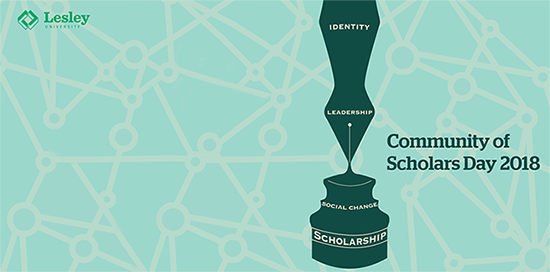Teacher Inquiry: Empowering youth allies through the arts
Abstract
In the current political climate, it is important to create a classroom environment where students feel safe discussing difficult topics, and where they can be proud of the identities they have and share. The Responsive Classroom model supports building this welcoming environment, but it is the teachers’ role to decide when and how lessons and explicit discussions are held around identity and social justice issues. As practicum students in our final semester of the Master's in Elementary Education and Creative Arts program at Lesley University, we crafted an inquiry project aiming to use our tools in arts-integrated teaching to address issues of discrimination and allyship that come up in our third grade classrooms.
In this ongoing teacher inquiry, we started with exploring four strategies for speaking up when injustice is witnessed (Teaching Tolerance). From there, we tried different arts strategies, adjusting our lessons and practice based on student responses and depth of discussion. Our exploration took place in two third grade classrooms at the same public school, beginning with similar initial lesson frameworks, but our strategies diverged as we adjusted strategies to meet the needs of individual students in each classroom. We each kept records of successes and challenges throughout the process, and will use this evidence to create an allyship curriculum to bring to our future classrooms.
Start Date
28-3-2018 2:10 PM
End Date
28-3-2018 3:00 PM
Presentation Type
Workshop
Disciplines
Art Education | Bilingual, Multilingual, and Multicultural Education | Curriculum and Social Inquiry | Disability and Equity in Education | Elementary Education
Creative Commons License

This work is licensed under a Creative Commons Attribution 4.0 License.
Teacher Inquiry: Empowering youth allies through the arts
U-Hall 3-098
In the current political climate, it is important to create a classroom environment where students feel safe discussing difficult topics, and where they can be proud of the identities they have and share. The Responsive Classroom model supports building this welcoming environment, but it is the teachers’ role to decide when and how lessons and explicit discussions are held around identity and social justice issues. As practicum students in our final semester of the Master's in Elementary Education and Creative Arts program at Lesley University, we crafted an inquiry project aiming to use our tools in arts-integrated teaching to address issues of discrimination and allyship that come up in our third grade classrooms.
In this ongoing teacher inquiry, we started with exploring four strategies for speaking up when injustice is witnessed (Teaching Tolerance). From there, we tried different arts strategies, adjusting our lessons and practice based on student responses and depth of discussion. Our exploration took place in two third grade classrooms at the same public school, beginning with similar initial lesson frameworks, but our strategies diverged as we adjusted strategies to meet the needs of individual students in each classroom. We each kept records of successes and challenges throughout the process, and will use this evidence to create an allyship curriculum to bring to our future classrooms.



